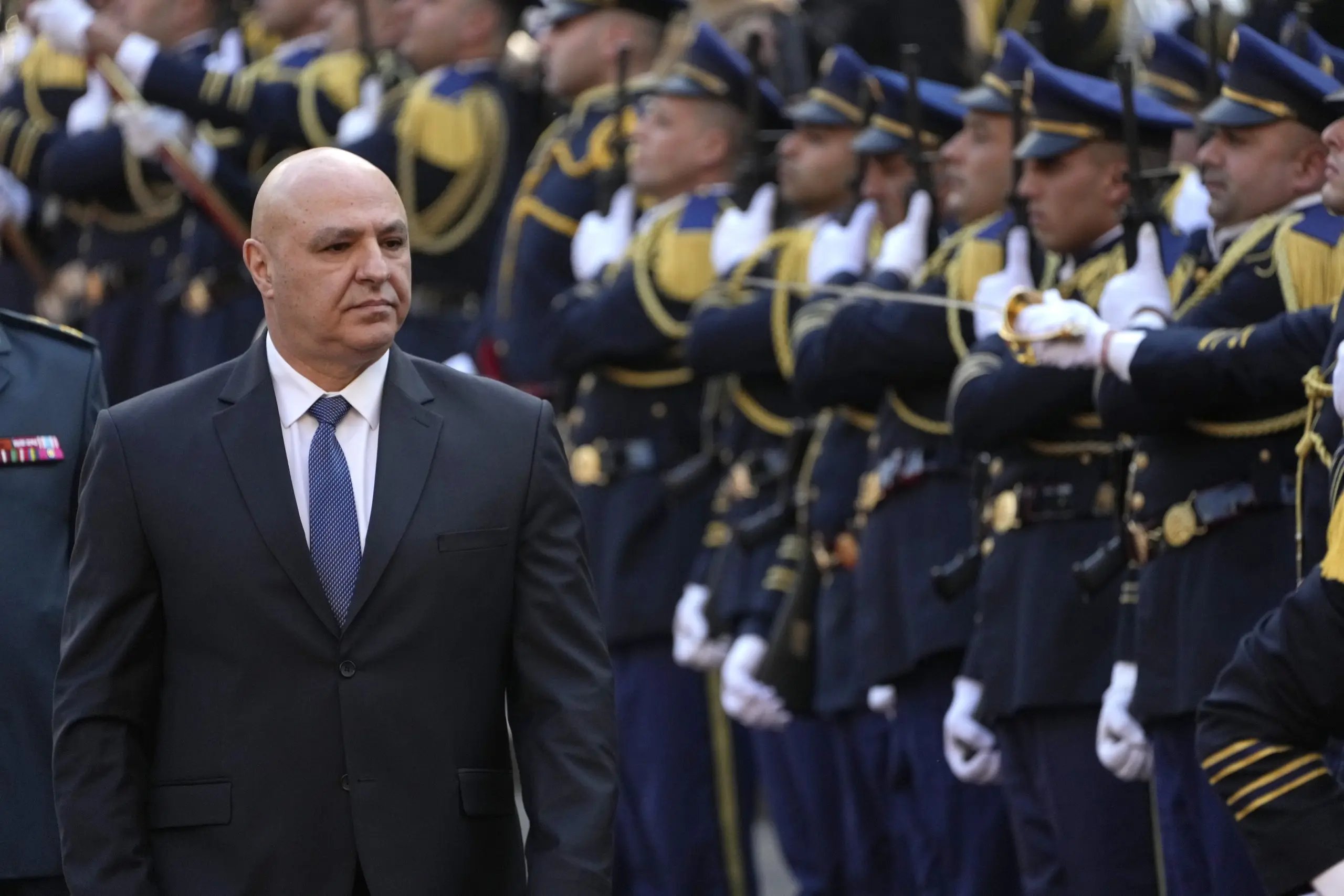Lebanon's new president adopts a nationalistic stance amid regional changes, contributing to the erosion of Hezbollah's influence.
Hezbollah faces another setback with President Joseph Aoun's victory, according to analysts.

The election of Joseph Aoun as president has brought about a significant change in Lebanon's political landscape, ending two years of political stalemate.
The election of Aoun is a significant achievement for the anti-Hezbollah camp, indicating the weakening influence of the powerful Shia terrorist organization in Lebanon's political system. However, experts warn that Hezbollah remains a formidable force in the country, and Aoun faces immense challenges in balancing Lebanon's internal politics and foreign relations.
For two years, Hezbollah worked to prevent the election of a new president, strongly opposing Aoun's candidacy. However, as the political climate changed and Assad was ousted from Syria, Hezbollah was forced to accept Aoun, who became the president.
According to Paul Salem, Vice President for International Engagement at the Middle East Institute, Hezbollah had been against the election of the current president for two and a half years and had hindered the process of electing a president. However, in the second round, they voted for him, indicating their weakness and loss of leverage.

"The collapse of the Assad regime in Syria has left Hezbollah increasingly isolated, as they are now cut off from Iran and isolated in the region. Hezbollah is the only Shiite community between here and Basra, and it's a Sunni takeover of Damascus, which used to be dominated by a friendly Alawite, pro-Iranian regime. This historic shift leaves the Shiites and Hezbollah deeply isolated. Hezbollah's future is worse than its present," Salem stated.
Aoun's election could help the U.S., Israel, and other Western and Arab powers move towards isolating Hezbollah's influence in Lebanon.
As the commander of the Lebanese army and a Maronite Christian, Aoun began his term with a focus on Lebanon's sovereignty. In his inaugural address, he highlighted the importance of the state maintaining a monopoly on the use of force.
David Schenker, who served as the head of the Bureau of Near Eastern Affairs at the U.S. State Department during the first Trump administration, stated that Aoun's speech was a positive and pragmatic step for Lebanon. According to Schenker, Aoun spoke about disarming all groups and ensuring that weapons are under the control of the state. This, Schenker noted, was a good move as it demonstrated a commitment to sovereignty and the rule of law.

Schenker, a Taube Senior Fellow at The Washington Institute and director of the Linda and Tony Rubin Program on Arab Politics, advised that Aoun's position as president does not give him complete control in Lebanon's political system. He stated, "The president is not the most powerful position in Lebanon. The key position will be the prime minister. It remains to be seen whether Aoun will exhibit the same courage in his new role as he did as chief of staff."
Despite recent Israeli campaigns and the assassination of its leader Hassan Nasrallah, Hezbollah still retains significant influence in southern Lebanon. However, according to Schenker, the organization's ability to intimidate Lebanon's population is diminishing. He said, "Hezbollah isn't the force it was. It can still reactivate its killing machine if needed, but it no longer dominates the way it did before."
"Hezbollah has conceded defeat against Israel and in Syria, so their current priority is to establish a government that is acceptable to the US and the region. This government will help protect them from future Israeli incursions and provide aid for the millions displaced by their actions in southern Lebanon. Their focus is on survival, both politically and financially."

Hezbollah's position in Lebanon and the country's relations with external powers like the U.S. and Israel are significantly impacted by Aoun's election. Lebanon has experienced economic collapse, with its currency devalued by over 99%, and nearly 80% of the population now living below the poverty line. Hezbollah's previous resistance to international pressure now seems less tenable.
The U.S. has historically backed Lebanon's military and is anticipated to deepen its ties with Aoun, given his role in the army and his pro-sovereignty stance. Schenker stated that Lebanon's future alignment with the U.S. and regional allies such as Saudi Arabia could offer the country crucial international backing.

"According to Salem, the U.S. military has had a close relationship with the Lebanese military for many years. This relationship has been the strongest link between the U.S. and Lebanon. With the new head of the military in power, who is a known figure in Washington, this realignment could put Lebanon on a more natural path of cooperation with the U.S., Saudi Arabia, and other regional allies."
Israel will closely monitor Aoun's presidency, and his commitment to U.N. Security Council Resolution 1701 could lead to a more cooperative stance from Lebanon toward Israel. Schenker stated that Israel will be invested in Lebanon's implementation of 1701, and Aoun's stance will influence Israel's position toward Lebanon, as the Trump administration has signaled a desire to end the wars in the region.
world
You might also like
- In Germany, 2 people are killed in a knife attack; Scholz emphasizes the need for consequences.
- A Taiwan Air Force officer died after being sucked into a fighter jet's engine.
- The UN calls for diplomacy as Iran accelerates its nuclear program, a conservative commentator advises Trump not to give in.
- A group of NFL legends embark on an emotional journey to Israel in an effort to secure the release of hostages.
- Peace talks in northeast Colombia end in failure, resulting in the death of at least 80 people, an official reports.



















